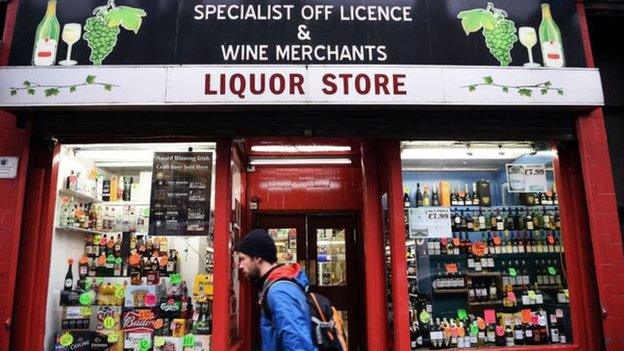Alcohol off-sales drop credited to minimum unit pricing
- Published
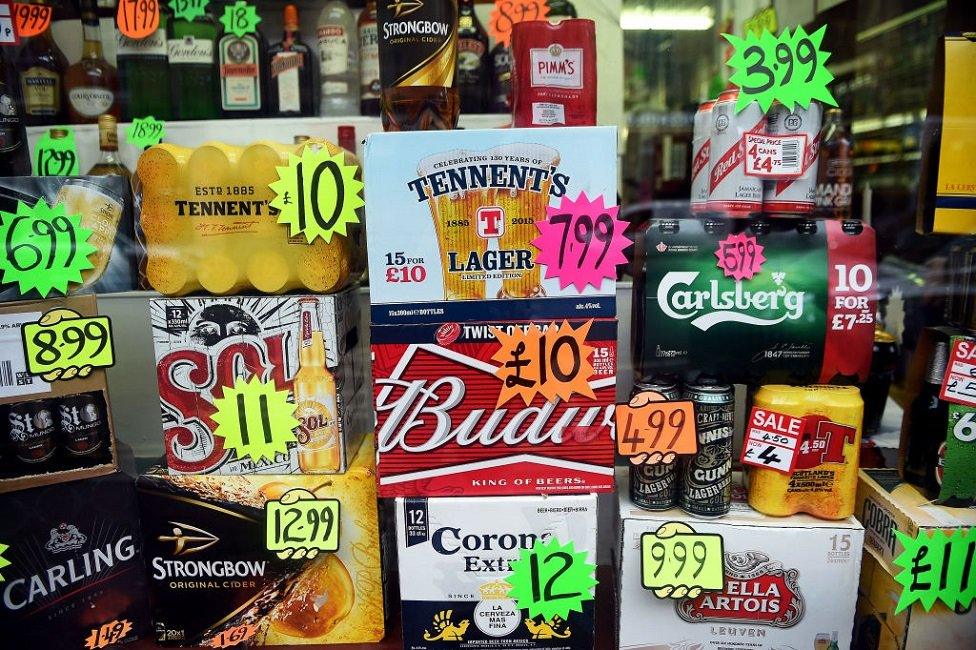
A minimum price for alcohol was implemented in May 2018
There has been a decline in alcohol consumption in Scotland's population, official data suggests.
A report published by Public Health Scotland said there had been a reduction of between 4% and 5% in Scotland's shops in the year after minimum unit pricing was introduced.
The biggest reductions were in the sale of cider and perry which also saw the biggest increase in price on average.
The Scottish government said the report was "very encouraging".
Minimum unit pricing (MUP) was finally introduced in Scotland on 1 May 2018 after years of delays from legal challenges.
It targeted low-cost, high-strength products, seen as a source of problem drinking, by setting a minimum unit price of 50p per unit of alcohol.
'Confident' reduction down to minimum pricing
The new research - a Public Health Scotland collaboration with Glasgow University - suggested a net reduction in sales per adult of alcohol from supermarkets and off-licences of between 4% and 5% when compared with England and Wales - where there is no minimum unit price - in the same 12-month period.
Glasgow University's Prof Jim Lewsey said: "The methods used in this study allow us to be much more confident that the reduction we have seen in per adult off-trade sales is as a result of the introduction of MUP, rather than some other factor.
"Incorporating data from England and Wales into our analysis controls for any changes in sales in a neighbouring region where the legislation was not introduced.
"We've also been able to adjust for other factors, such as household income, sales of alcohol through pubs and clubs and of other drink types."
He added that the methodology also took into consideration any existing trends and seasonal variations which could exist independently of minimum unit pricing but which could have impacted on off-trade alcohol sales following its introduction.
"Alongside a range of additional analyses accounting for various other factors, we have demonstrated that the introduction of MUP was associated with a fall in population consumption of off-trade alcohol of between 4 and 5%," he said.
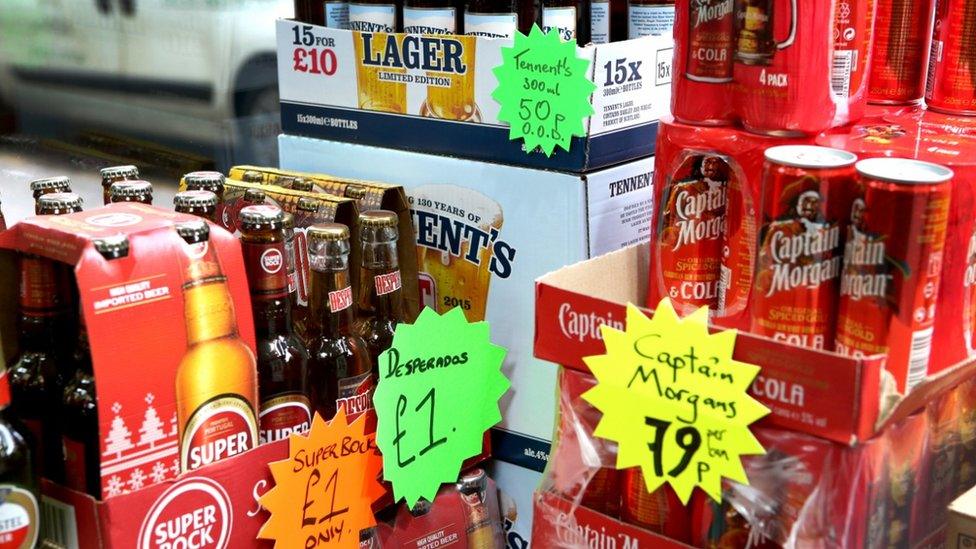
Lucie Giles, Public Health Intelligence principal at Public Health Scotland, said: "The greatest relative net reductions were seen in sales of cider and perry, where the greatest increases in average price were also seen.
"There were smaller relative reductions in sales of spirits and beer - but as they account for a considerable share of the off-trade market, they make an important contribution to the reduction overall.
"These reductions were partly offset by off-trade sales of wine, fortified wine and ready-to-drink beverages, which this analysis found to have increased in the year post-MUP.
"Over the same period in England and Wales, per adult alcohol sales increased.
"This analysis of alcohol sales in the off-trade is one of several in our evaluation examining the impact of MUP on population alcohol consumption. A further statistical analysis considering sales in the three years following the implementation of MUP will be published in 2022".
'Encouraging results'
The Scottish government's Public Health Minister Joe FitzPatrick said it was "now unarguable" that minimum unit pricing brought about a reduction in the sale of alcohol.
"These are very encouraging results for the first full year of our world-leading MUP policy," he added.
"The study takes account of a comparison with England and Wales, where MUP was not in place, and also factors such as underlying trends and seasonality.
"The results mean it is reasonable to conclude that MUP was responsible for these reductions."
'Really significant'
Alison Douglas, chief executive of Alcohol Focus Scotland, said minimum unit pricing seemed "to be changing our drinking habits for the better", saying the drop in sales was "really significant".
She added: "It is also clear that it is the high-strength, low-cost drinks, favoured by heavier drinkers, which we are drinking less off.
"This gives real cause for optimism that MUP is having the intended effect and that it will improve - and save - many people's lives."
Ms Douglas added that it was important not to be complacent, and that one measure alone to reduce alcohol consumption and harm would not be sufficient.
She added: "The Scottish government has a strong track record in tackling alcohol harm and they must continue to prioritise the nation's health and wellbeing as part of our longer-term recovery from this crisis."
- Published28 January 2020
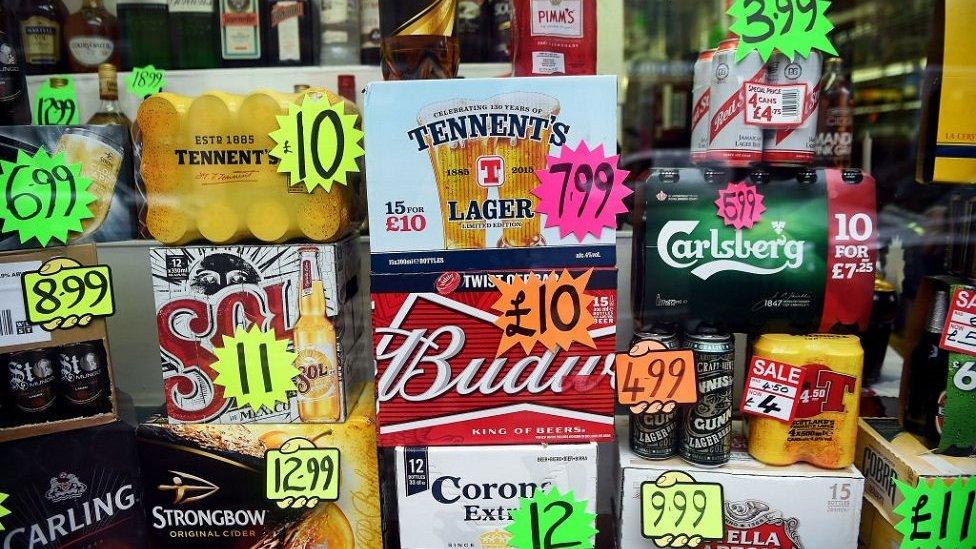
- Published26 September 2019
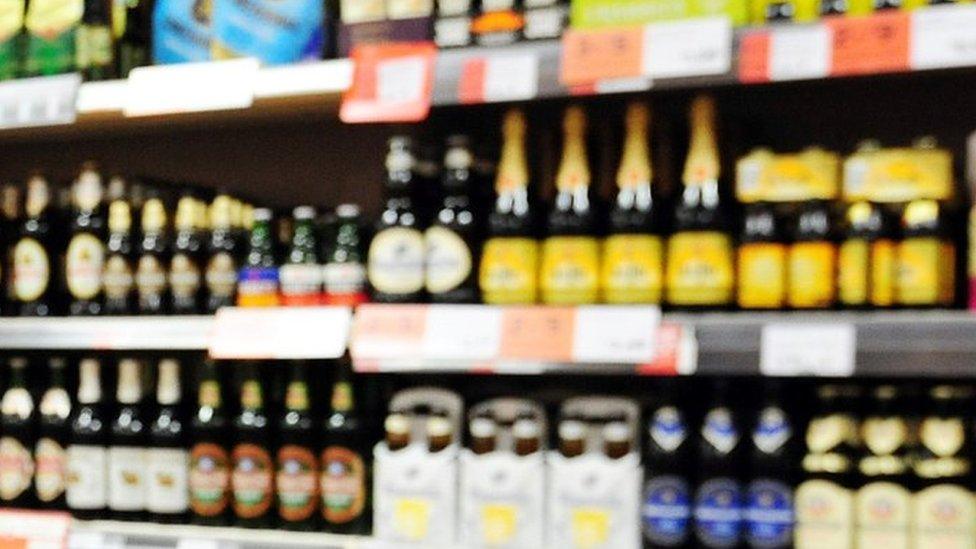
- Published1 August 2019
